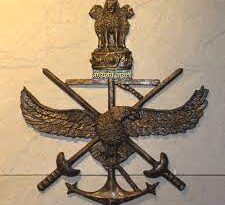IES ( Indian Engineering Services)
IES stands for Indian Engineering Services. UPSC conducts the Engineering Services Exam (ESE), which is a national level test,
to select candidates for Indian Engineering Services in various government departments
such as Power, Telecommunication, PWD, Railways, etc.
Selected students are appointed as active class 1 police officers. as an engineer under the government. of India.
The Engineering Services Exam comprises of engineers working under the Indian government and appointed as a Class Officer
– 1. They hold a large part of the public sector economy, which includes Indian Railways, Power, Telecommunications, Central Water engineering, Defense service of Engineers, Central Engineering Service, etc. The quality of the work done by these managers depends largely on their engineering branch. and the service or sector in which they are recruited. Progress is well underway and is gaining momentum. The first position offered is that of Ast. The senior engineer and the management team ends up in the position of Chairman / Managing Director.
Integrated competition testing was conducted by the Union Public Services Commission (UPSC) to monitor Engineering Services Testing.
The test includes a written test followed by a personality test.
Eligibility for eligibility is performed under the following categories:
Civil Engineering
mechanical Engineering
Electrical engineering
Electronics & Telecommunication Engineering
ELIGIBILITY
(I) Nationality:
Indian citizen,or
Nepal article, or
Bhutan title, or
a Tibetan refugee who arrived in India before January 1, 1962 with the intention of permanently settling in India
, or
an Indian national who has emigrated from Pakistan, Burma, Sri Lanka or East African countries Kenya, Uganda, United Republic of Tanzania, Zambia, Malawi, Zaire and Ethiopia or from Vietnam for the purpose of permanent residency in India.Provided that the candidate who forms part of paragraphs (b), (c), (d) and (e) above will be the person from whom the Indian Government competency certificate has been issued.
A person who will be registered when a competency certificate is required, may be admitted to the examination but an application for nomination can only be granted after the Government of India has been issued with the required qualification certificate.
(II) Age Limits:
(a). The candidate must be 21 years of age and must not be 30 years old on January 1, 2019, that is, he or she must not have been born before 2nd January 1989 and no later than 1st day. January, 1998.
(b). The age limit of 30 years will be reduced to 35 years for public servants in the following categories, if they are employed in a Department / Office administered by any of the officials mentioned in column 1 below and who are active. to be admitted to the public test any of the Services / Posts referred to in column 2, are eligible.
A full-time candidate in the Department / Office concerned. This exemption will not be accepted for a candidate who has been appointed to a full-time position in the Department / office during his / her probationary period.
However, this exemption will be granted to the appointed inspector as long as he / she has been able to borrow a full-time job from the Department / office administered by any of the officials mentioned in column 1 below.Candidate who has been in the temporary service of the Department / Office for at least 3 years on January 1, 2019.
(c) The upper age-limit prescribed above will be further relaxable :
It lasts up to five years if the candidate is part of an Organized Nation or an Organized Nation
.Up to three years in the case of Candidates for Other Back Classes are eligible to receive a valid booking for such candidates.
The closing date set for the acceptance of the application will be considered as the date for determining the OBC status (including the shiny layer) of candidates
.Up to five years if the nominee usually resides in Jammu Province and Kashmir during the period from January 1, 1980 to December 31, 1989.For up to three years, in the case of Security personnel, they are disabled in the course of action during hostilities with any foreign country or affected area, and are released as a result.
For up to five years in the case of Personnel comprising of Delegated Officers and ECO / SSCOs, they have served at least five years in the Military Service from 1 January, 2019 and are released
(i) at the end of the assignment (including those to be completed within one year from 1 January, 2019 without dismissal or release on account of misconduct or inactivity, or
(ii) as a result of a physical disability caused by the Military Service, or
(iii) disqualification.Up to five years in the case of ECO / SSCOs have completed \the first five years of service of the Armed Forces with effect from 1 January, 2019 and their work has been extended to \more than five years and in his case the Minister of Defense.
issues a certificate stating that they can apply for public service and will be released with a three-month notice of election from the date of receipt of the application for appointment.Up to 10 years in the case of PwBD candidates (i.e.. Locomotor Disorders including Cerebral Palsy, Treated Leprosy, Dwarfism, Victims of Acid Attack & Muscular Dystrophy and Hard of Hearing).
(III) Minimum Educational Qualification
To be eligible for the test, the applicant must be –
obtain a degree in Engineering from a University of Central or Provincial Legislative Assembly in India or other educational institutions established by an Act of Parliament or recognized as Universities under Section 3 of the University Grants Commission Act, 1956; orpassed Phases A and B of the Center for Engineering Institute (India); orobtain a degree / Engineering degree in Engineering from that University / College / \External Institution and under such circumstances as may be recognized by the Government for this purpose from time to time,
orpass the Membership Examination of the Institute of Electrical and Telecommunication Engineers (India); orpassed the Associated Membership Examination Phase II and III / Categories A and B of the Aeronautical Society of India; orGraduated Graduate Membership Examination for Institution of Electronics and Radio Engineers, London held after November, 1959.
Provided that a candidate for the Indian Naval Armament Service (Electronics Engineering Posts) and Indian Radio Regulatory Service Group ‘A’ may have any of the above qualifications or qualifications mentioned below: –
For Indian Navy Service (Electronics Engg. Post) –
M.Sc. degree or equivalent with Wireless Communication Electronics, Radio Physics or Radio Engineering as a specialized course.For Indian Radio Regulatory Service – M.Sc. degree or equivalent with Wireless Communication Electronics, Radio Physics or Radio Engineering as a subject or Master’s Degree in Physical Science and Radio Communication or Electronics or Telecommunication as a specialized subject.



